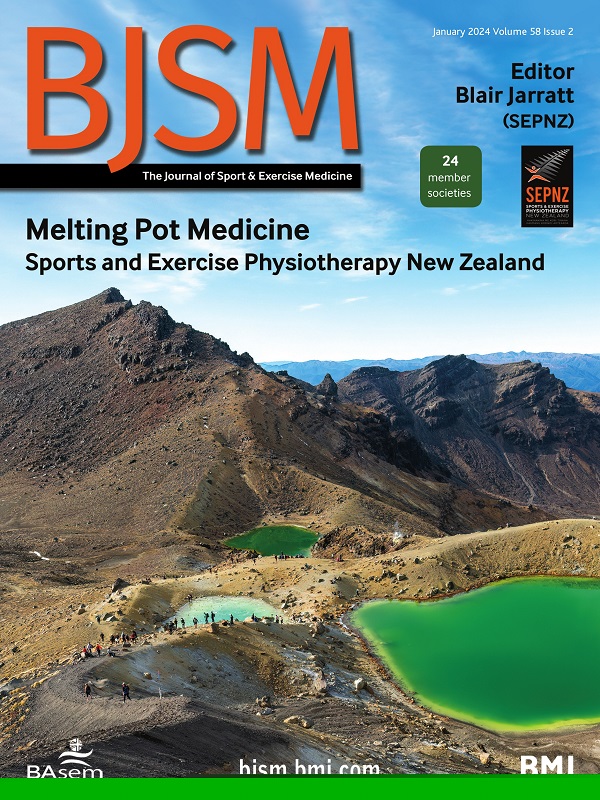优秀运动员的神经多样性和心理健康
IF 16.2
1区 医学
Q1 SPORT SCIENCES
引用次数: 0
摘要
精英运动员的心理健康和幸福被认为是运动成绩的核心。因此,在精英运动中,最大限度地提高健康水平,以及最近的心理健康12,对支撑运动成功的身体能力至关重要。神经多样性是一个总称,用于识别所有个体的自然变异,神经分化通常用于指注意力缺陷/多动障碍(ADHD)、自闭症和其他神经发育差异。考虑到心理健康的重要性,令人惊讶的是,优秀运动员的表现和神经多样性对个人的影响尚未得到更充分的评估。多动症和自闭症在普通社区中非常普遍。优秀运动员代表了普通群体中一个独特的部分,越来越多的证据表明,与非运动员群体相比,自闭症和多动症在运动员群体中的发病率可能更高——令人信服地高于普通人群在精英运动员亚群中有一些共同的特征,通过这些特征可以推测神经分化的增加,包括竞争优势和高表现。举个例子,精英运动需要对新出现的刺激做出常规的、专注的、一致的、快速的反应,比如对场地的变化或对手的行为做出反应。过度专注的能力,即长时间专注于一个主题或活动的能力,通常是自闭症的核心优势,在严格和常规的训练要求下,它可能是适应性的。本文章由计算机程序翻译,如有差异,请以英文原文为准。
Neurodiversity and the mental health and well-being of elite athletes
Mental health and well-being among elite athletes are accepted as central to athletic performance. Maximising health, and more recently, mental health,1 2 in elite sport is thus pivotal to the physical competencies that underpin athletic success. Neurodiversity is an umbrella term used to recognise the natural variations of all individuals, with neurodivergence often used to refer to attention-deficit/hyperactivity disorder (ADHD), autism, and other neurodevelopmental differences. Given the importance of mental health, it is surprising that the performance and personal impacts of neurodiversity in elite athletes have not been more substantially evaluated. ADHD and autism are highly prevalent in the general community.3–5 Elite athletes represent a unique subsection of the general community, and evidence increasingly suggests that autism and ADHD may occur at greater rates in athletes compared with non-athlete cohorts—convincingly greater than that of the general population.6 Within the elite athlete subgroup are some common traits through which increased neurodivergence can be hypothesised, including competitive advantage to high performance. As examples, elite sport requires commitment to routine, exclusive focus and consistent and rapid response to emerging stimuli such as responding to changes in the field or an opponent’s behaviour. The ability to hyperfocus, that is, to focus intensely on a single topic or activity for extended periods of time, is often a core strength of autism and may be adaptive in the context of the rigours and routine demanded of training in …
求助全文
通过发布文献求助,成功后即可免费获取论文全文。
去求助
来源期刊
CiteScore
27.10
自引率
4.90%
发文量
217
审稿时长
3-8 weeks
期刊介绍:
The British Journal of Sports Medicine (BJSM) is a dynamic platform that presents groundbreaking research, thought-provoking reviews, and meaningful discussions on sport and exercise medicine. Our focus encompasses various clinically-relevant aspects such as physiotherapy, physical therapy, and rehabilitation. With an aim to foster innovation, education, and knowledge translation, we strive to bridge the gap between research and practical implementation in the field. Our multi-media approach, including web, print, video, and audio resources, along with our active presence on social media, connects a global community of healthcare professionals dedicated to treating active individuals.

 求助内容:
求助内容: 应助结果提醒方式:
应助结果提醒方式:


